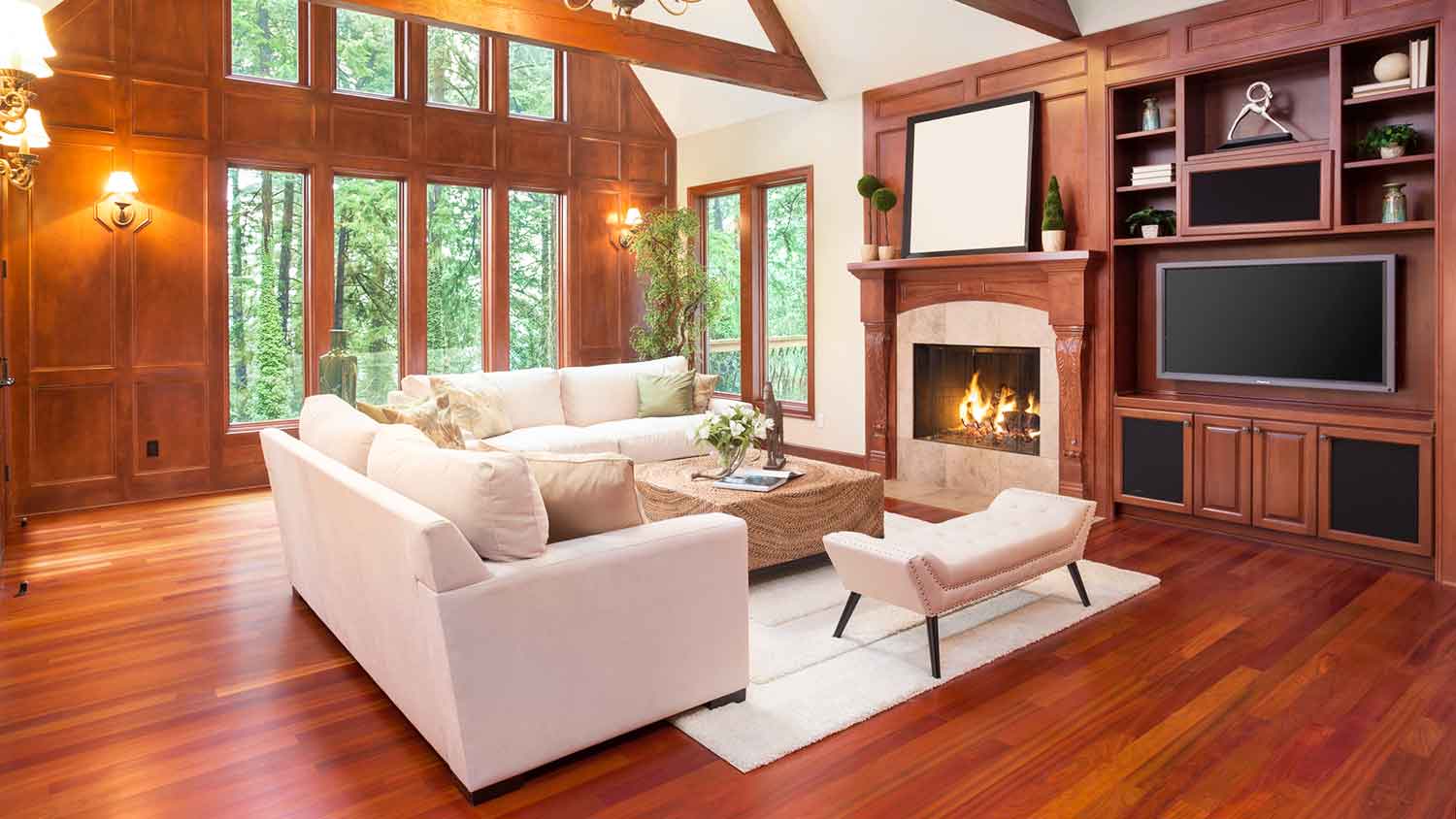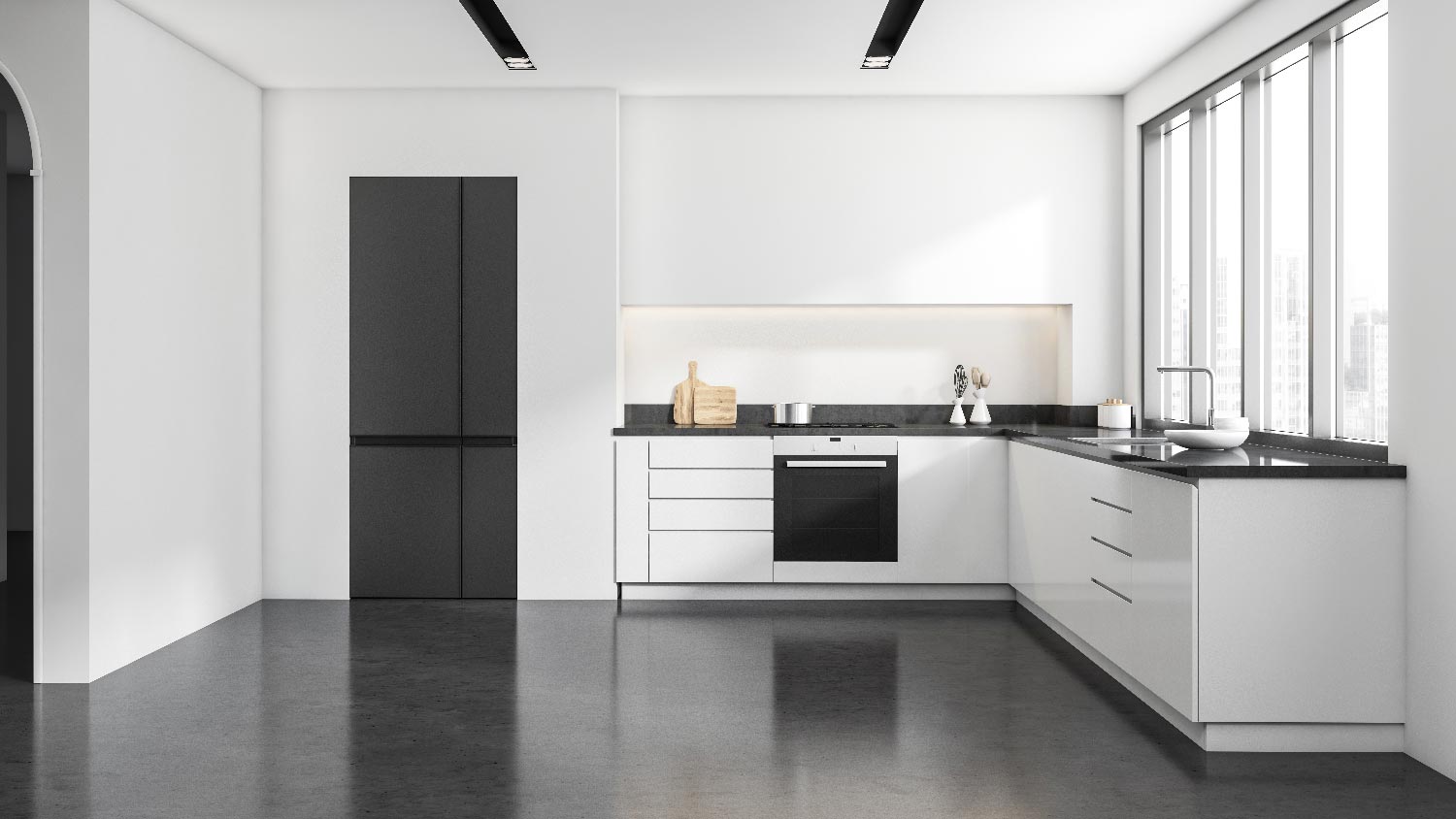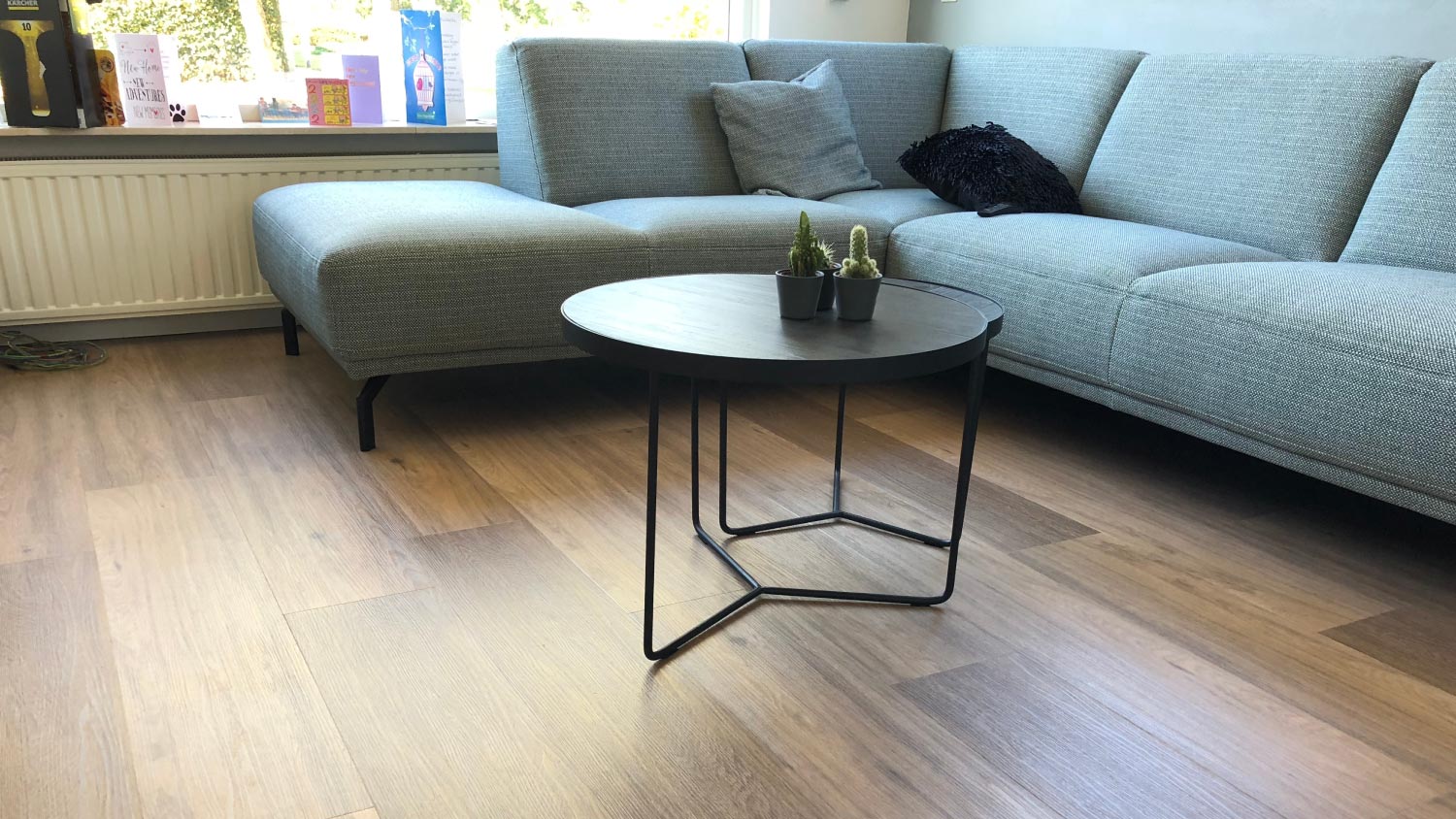
Discover vinyl flooring installation costs, including average prices, key cost factors, and tips to save on your new floors.
The average floor repair costs $1,100, with most repairs ranging from $500 and $3,000. A pro will assess the extent of the damage to give you a quote.


Floor repair costs can dramatically vary based on the extent of the damage
Small repairs like fixing surface scratches could cost as little as $200
Extensive structural damage could cost more than $3,000 to fix
Certain materials, like viny,l are challenging to repair and may require replacement
Most flooring repair contractors charge $60 to $120 per hour, but there may be project minimums
Floor repairs cost $500 to $3,000, but the average homeowner spends around $1,100. This is a wide range because all damage is different, from minor scratches to major structural issues. Budget around $2 to $25 per square foot for most repairs, but up to $50 per square foot for complex jobs.
Repairing floors gives your room a fresh look—just put one plank in front of the other. This guide will help you understand the potential costs for your project.
Several factors influence the cost of repairing your floors. Factors such as the type of flooring, the extent of the damage, and which part of the floor requires repair all come into play.
The type of flooring will impact the final cost because different types of flooring have different repair methods. This can affect the price. For example, laminate flooring repair costs an average of $1,240, while carpet repairs cost an average of $207. Some materials, such as vinyl, are difficult to repair and often require replacement, while hardwood and certain types of engineered wood can be refinished.
Here are some average floor repair costs for different materials.
| Type | Cost |
|---|---|
| Carpet | $150–$300 |
| Tile | $300–$675 |
| Hardwood | $500–$1,725 |
| Vinyl | $300–$1,850 |
| Laminate | $400–$2,125 |
| Concrete | $400–$5,000 |
There are three layers to your floor: the flooring, the subfloor, and the underlying joists. The cost of the repair depends on which layer needs to be fixed. The structural elements of your floor are less accessible and require more labor to repair, while repairs to the surface of your flooring are more affordable.
| Repair | Average Cost |
|---|---|
| Surface repairs | $200–$1,200 |
| Subfloor repairs | $900–$3,000 |
| Joist repairs | $4,000–$12,000 |
Surface repairs: Surface-level repairs, like scratches or dents, are the most affordable type of repair. You’ll usually spend $200 to $1,200, but you could spend even less fixing minor cosmetic damages on your own.
Subfloor repair: The cost of replacing your subfloor is $900 to $3,000. You can often replace small sections to keep costs down, but this depends on the extent of the damage. On average, homeowners typically spend between $3 and $10 per square foot.
Floor joist repair: On average, floor joist repair costs $4,000 to $12,000, with most homeowners spending $100 to $1,000 per joist. It depends on how accessible your joists are and the extent of the repair. Sistering (or attaching a new joist to a damaged one) is generally the most affordable option, ranging from $100 to $300 per joist on the low end.
Floor repair costs dramatically vary based on the extent of the damage. Minor repairs (like fixing scratches, dents, and stains) usually only cost between $200 and $1,000. Major maintenance (like fixing sagging flooring or water damage) could cost $800 to more than $5,000.
| Damage | Cost Range |
|---|---|
| Scratches or dents | $25–$100 |
| Fading or discoloration | $200–$1,200 |
| Squeaky flooring | $200–$1,000 |
| Water damage | $200–$6,300 |
| Sagging or uneven flooring | $1,000–$8,500 |
Scratches: Repairing scratches or dents typically costs between $25 and $100 per scratch. The repair method depends on the type of flooring, as you can often resolve the issue with a DIY flooring repair kit. If there are numerous scratches and dents across the entire floor, you may need to refinish your flooring or replace it if the material can’t be refinished. On average, refinishing hardwood flooring costs $1 to $8 per square foot.
Fading and discoloration: Repairing a faded or discolored floor typically costs between $200 and $1,200 per room. The method could include cleaning, refinishing, reglazing, or replacement, depending on the material. The more significant the labor, the more it will cost.
Squeaky flooring: Squeaky floors typically cost between $200 and $1,000 to repair. A flooring contractor will fix your squeaky floors by first diagnosing the issue, which could involve anything from improper installation, wearing adhesive, warping, or other kinds of damage.
Water damage: For most homeowners, water damage restoration costs $200 to $6,300. This type of damage can warp or buckle your floor, impacting not just the top layer but the elements beneath it For minor damage, you can refinish your floor or swap out the warped planks. For major damage, you may need to replace your subfloor.
Sagging or uneven flooring: Repairing uneven or sagging floors costs $1,000 to $8,500, but the cost may increase if you have more severe foundation issues. This is usually a structural issue that requires substantial work, whether it involves replacing the subfloor or addressing the floor joists.
Most flooring contractors charge between $60 and $120 per hour for their labor, but they typically have a minimum fee for smaller repairs. In that case, they’ll charge a flat fee for the project. If you’re making additional repairs along with your flooring, you may need to hire some other contractors. For example, a local structural engineer can survey your foundation if your flooring contractor thinks it caused your sagging floor.
Here are some potential contractor costs:
Structural engineers cost: $350–$775
Plumbers cost: $180–$500
Electricians cost: $175–$550
Where you live will impact the cost of repairing your floors. Areas with a higher cost of living come with higher contractor costs. If you live in a more remote location, sourcing materials may also be more expensive.
| City | Average Cost |
|---|---|
| Phoenix, AZ | $1,030 |
| Las Vegas, NV | $1,130 |
| Denver, CO | $975 |
| Hartford, CT | $1,075 |
| Chicago, IL | $1,475 |
| Atlanta, GA | $1,130 |
| Los Angeles, CA | $1,275 |
| New York, NY | $1,700 |
| Miami, FL | $1,030 |
| Austin, TX | $1,155 |
When you repair your flooring, you may need to address other issues as well. For example, if your floor is sagging because of a foundation problem, you’ll need to fix your foundation. At the same time, many homeowners choose to update their walls to give their room a complete refresh when they renovate their flooring. Consider the cost of these add-ons:
Baseboard installation costs: $800–$2,250
Underfloor heating costs: $1,650–$6,700
Drywall repair costs: $300–$950
Painting costs: $966–$3,100
Foundation repair costs: $2,220–$8,125
Not every floor can be repaired. It depends on the type of flooring. You can fix most minor scratches, dents, or tears with different types of fillers. If the surface damage covers a large area and you have solid hardwood or a thicker engineered hardwood, you can opt to refinish your flooring instead of replacing it. For types of flooring that can’t be refinished, such as laminate or vinyl, you may want to consider replacing damaged planks or tiles. You may need to replace the whole floor or get creative with sectioning if you can’t find a matching material.
Here are some signs to skip repairs and replace your flooring:
Repairs cost more than 50% of the cost of new flooring
Your floors are made from a material that can't be refinished
Your engineered hardwood floors have already been refinished before
You have extensive water damage
You need to repair sections of your subfloor
Your floor is significantly warped or damaged
You can’t swap out individual planks because your flooring was discontinued
You don’t like your flooring and want something new
Hiring a local floor repair pro costs about $60 to $120 per hour. If you’re wondering whether you can DIY the job, the answer depends on the extent of the damage and the type of flooring. A pro has the skills and experience to get the job done properly, so your floors last for years to come.
These are the advantages of hiring a flooring repair professional:
A floor repair company can handle a wide range of jobs, from minor surface repairs to extensive subfloor and joist repairs.
Bigger issues—such as sagging or uneven floors and water damage caused by leaks or flooding—require professional help.
Your floor will look as good as new after a professional repair.
A floor repair specialist can quickly diagnose and fix issues, whereas a DIY job takes longer.
Your pro will obtain the necessary permits for structural repairs.
Depending on your flooring, a DIY fix may void the warranty.
There are some smaller aspects of the project you can take on while leaving structural issues and complex repairs to your flooring repair pro:
Clean the area and remove baseboards, trim, and furniture prior to the installation
Work on small repairs like minor surface scratches and dents
Document issues like visible damage, leaks, soft spots, sagging, and squeaky areas
Budgeting for repairs can seem overwhelming, especially if your flooring has sustained significant damage. The good news is, there are a few ways to save on floor repair costs:
Make DIY repairs where possible: With flooring, it’s possible to cut down on labor costs by repairing minor surface damage yourself. Leave the bigger issues to a pro, and fix scratches and dents with a DIY repair kit.
Fix multiple issues at once: If your contractor is already working under your flooring, you should address any long-standing problems that have been hidden under your floor. This includes plumbing issues, electrical problems, issues with the underlayment, joists, insulation, and subfloor. You’ll save on labor costs because you won’t need to remove your floor twice.
Get multiple quotes: When you’re looking for someone to repair hardwood and other types of flooring, ensure you obtain at least three quotes. This can give you a sense of what a good value is in your local market.
Let your flooring repair pro know the type of flooring you have, the installation date, and past repairs.
Discuss any issues you're experiencing and other related repairs you may need, such as baseboards and underlayment.
Ask your pro if any repairs are urgent and how long you'll need to stay off the floor.
Home is the most important place on earth, which is why Angi has helped more than 150 million homeowners transform their houses into homes they adore. To help homeowners with their next project, Angi provides readers with the most accurate cost data and upholds strict editorial standards. We extensively research project costs to develop the pricing data you see, so you can make the best decisions for you and your home. We rely on reputable sources, including the U.S. Bureau of Labor Statistics, academic journals, market studies, and interviews with industry experts—all to ensure our prices reflect real-world projects.
Want to help us improve our cost data? Send us a recent project quote to [email protected]. Quotes and personal information will not be shared publicly.
From average costs to expert advice, get all the answers you need to get your job done.

Discover vinyl flooring installation costs, including average prices, key cost factors, and tips to save on your new floors.

If your laminate is damaged, it’s time for repairs or replacement. This guide will show you everything you need to know about laminate floor repair costs.

Removing tile flooring is a labor-intensive process. Here’s how much it costs to remove tile flooring, whether you hire the project out or do it yourself.

Updated flooring can make any room in your home feel brand new. Explore flooring installation costs in Seattle, WA, from materials to labor costs.

Updated flooring can make any room in your home feel brand new. Explore flooring installation costs in Minneapolis, MN, from materials to labor costs.

Updated flooring can make any room in your home feel brand new. Explore flooring installation costs in Atlanta, GA, from materials to labor costs.